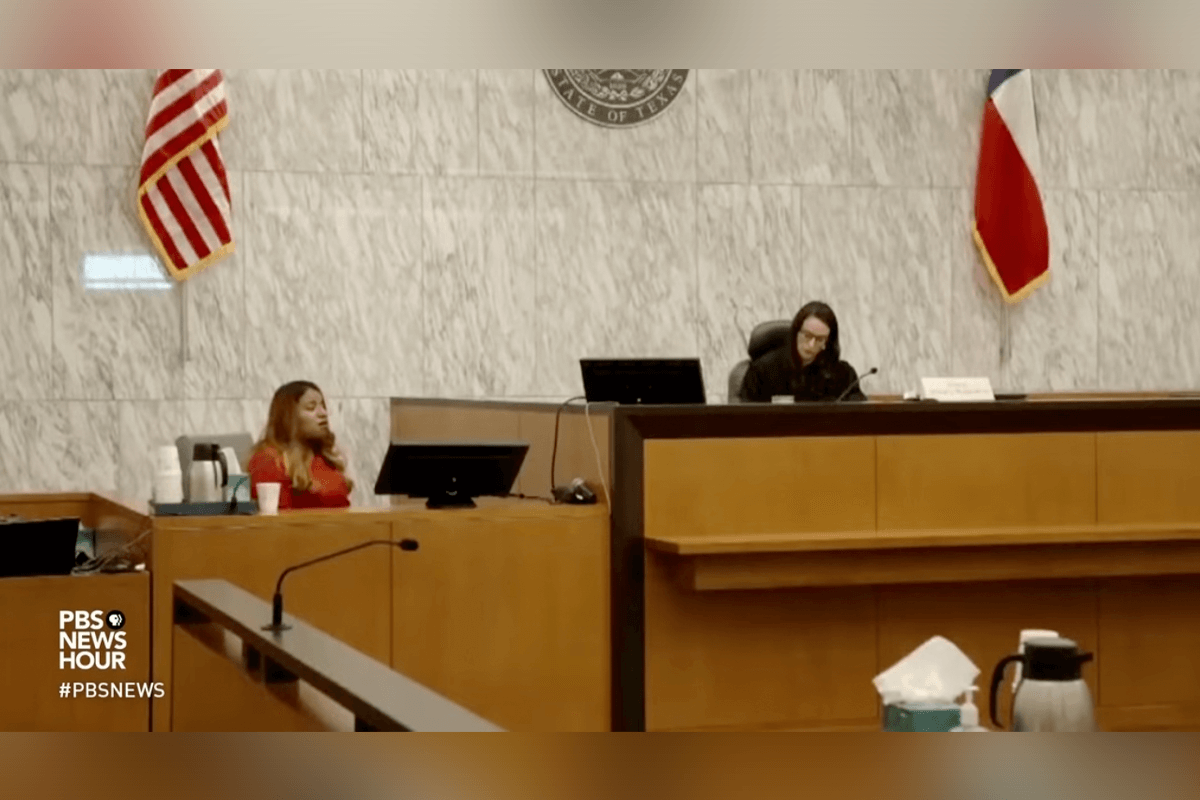
During the five decades that followed the end of Roe v. Wade, lawsuit after lawsuit in states across the USA chipped away at abortion rights. But in July 2023, in the wake of the ban in Texas on all abortions, the case for abortion was made in a Texas courtroom by women themselves who had been denied abortions. They were suing the state to clarify the exceptions to its ban, which makes it illegal to perform an abortion unless a patient is facing death or “substantial impairment of a major bodily function”. These women, who had all had wanted pregnancies, described in vivid, harrowing detail how the state’s abortion ban had endangered their health and traumatised them.
In the case of Samantha Casiano, the ban forced her to carry and give birth to a baby girl without a formed skull or brain, only to watch her die a tortured death four hours later. “She was gasping for air,” Casiano testified on the witness stand. She described how her baby turned purple and her eyeballs were bleeding. “I just kept telling myself and my baby: ‘I’m so sorry that this has happened to you.’ I felt so bad. She had no mercy. There was no mercy there for her.”
Casiano had been denied an abortion months earlier after she found out her baby had anencephaly, a fatal condition. She had wanted her daughter, whom she named Halo, to be spared from suffering and to “go to rest sooner.” She described abortion as an act of compassion, mercy, and love.
Women have long shared abortion stories privately, and at public speak-outs, through #ShoutYourAbortion and the nonprofit group WeTestify. But the formality of the Austin courtroom focused unblinking attention on their experiences. The black-robed judge and court stenographer leaned in to hear plaintiffs as their testimony under oath was recorded for a national television audience. It put anti-abortion activists on the defensive.
“We’re in this moment where all of the stories are coming out and it’s raw,” said Greer Donley, an associate professor of law at the University of Pittsburgh School of Law. “All of these secrets — abortion, miscarriage, the blurring of miscarriage and abortion — that’s something people viscerally appreciate now… Storytelling is the future,” Donley said. “That’s how you change hearts and minds.”
The pregnancy complications and medical emergencies described by the plaintiffs both “subvert ideas about motherhood” and “support ideas about motherhood,” said Mary Ziegler, a professor of law at the University of California-Davis who has written books about the history of abortion.
“Usually, the (anti-abortion) story is women versus fetuses, and that people having abortions are selfish or don’t care,” Ziegler said. “But these women in court are saying, ‘What was best for my child was the abortion. I was denied that, but so was my child.'”
Infant deaths have spiked in Texas since the government mandated births of nonviable pregnancies. In 2022, preliminary infant mortality data from the Texas Department of State Health Services, first obtained by CNN, showed a 21.6% increase in infant deaths caused by severe genetic and birth defects. That increase reversed a 15% decline in infant deaths from 2014 to 2021.
The Texas lawsuit has highlighted the myriad reasons women and their families (at least two husbands were in the Austin courtroom) require abortion care throughout an entire pregnancy, Donley said.
In considering doing away with any limits on abortion, “we don’t have to trust that women are perfect, benevolent mothers,” Donley said. “We just have to believe they are rational actors. After 24 weeks, most abortions require induced birth. So, we’re imagining a person who, for no good reason, endured the burdens of pregnancy, watched her body change completely, and went through labor and delivery of a stillborn baby just because she couldn’t get around to an abortion earlier? People have abortions late because horrible things happen.”
Texas District Judge Jessica Mangrum on August 4 ruled in favor of the plaintiffs, but the Texas attorney general has appealed the decision, blocking the order. The state’s assistant attorney general, Amy Pletscher, had asked the court to dismiss the case. She told Mangrum that the “plaintiffs sustained their alleged injuries as a direct result of their own medical providers failing them.”
But while the outcome of the case is uncertain, legal scholars said it marked the beginning of a new strategy for the abortion rights movement in the United States.
SOURCE: News Medical, by Danielle Ellis, 7 August 2023. Reprinted from Kaiser Health News with permission to News Medical from the Henry J Kaiser Family Foundation. VISUAL from PBS News Hour video included with the article.



